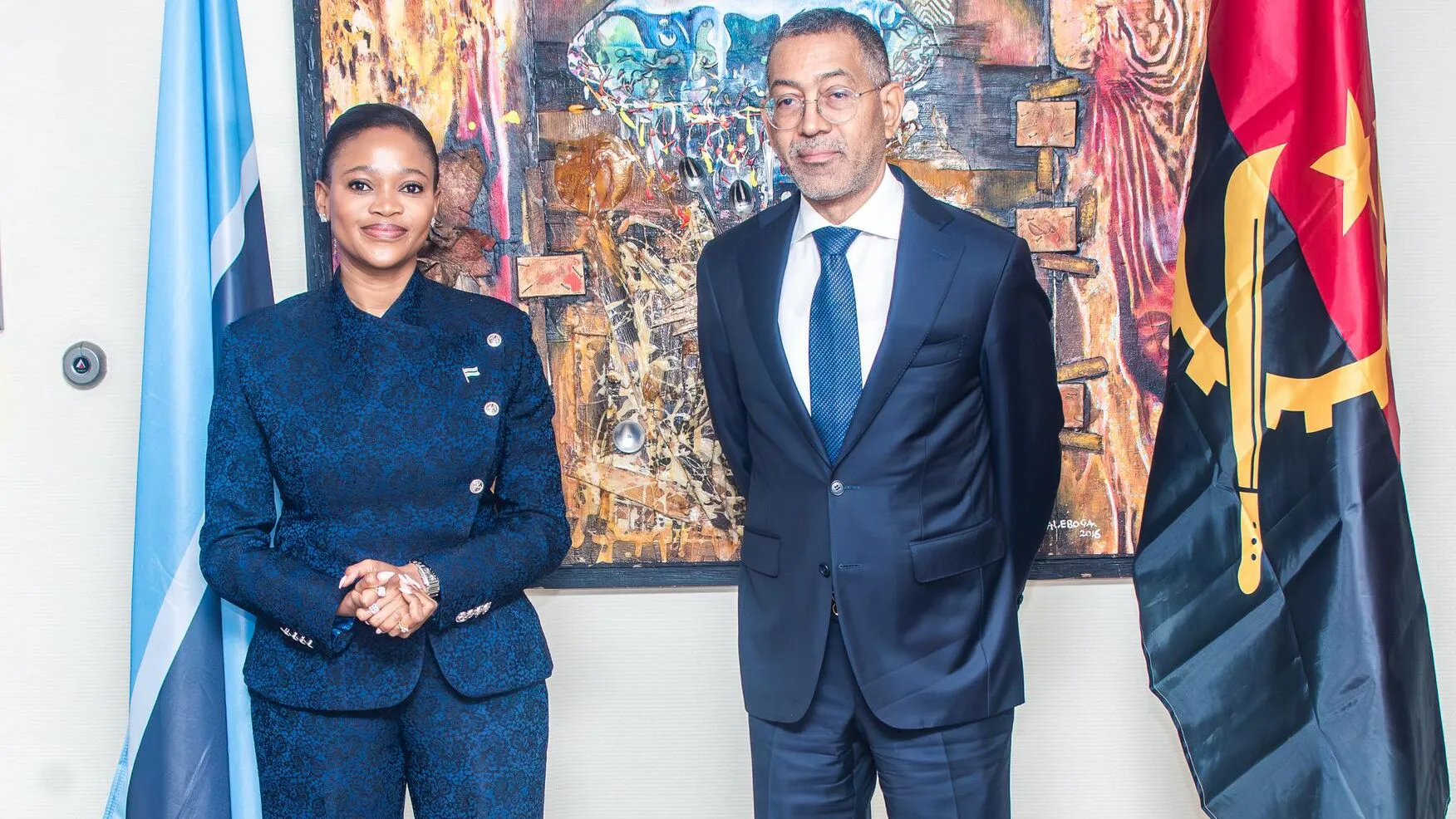Botswana and Angola Vie for Control of De Beers Amid Anglo American’s Exit

Botswana and Angola compete for De Beers amid Anglo American’s exit, signaling a new era of African control in the global diamond industry.
The race to acquire De Beers, one of the most recognized names in the global diamond industry, has intensified as Botswana and Angola emerge as leading contenders following Anglo American’s decision to divest from its diamond subsidiary. The two nations, both long-standing players in the global diamond market, recently held high-level talks in Gaborone to discuss potential cooperation in the sector. This strategic dialogue between Botswana’s Mines Minister Bogolo Joy Kenewendo and Angola’s Minister of Mineral Resources, Petroleum, and Gas, Diamantino Pedro Azevedo, has fueled speculation about a possible joint ownership model or coordinated bidding approach to secure control of De Beers.
Currently, Botswana holds a 15 percent stake in De Beers through its Debswana partnership, a joint venture responsible for about 70 percent of De Beers’ rough diamond supply. This gives Botswana a strong bargaining position, as it is not only a shareholder but also an operational pillar of De Beers’ diamond pipeline. Meanwhile, Angola’s diamond sector has undergone significant reform and modernization, allowing the country to surpass Botswana as Africa’s leading diamond producer by value for the first time in two decades, according to data from the Kimberley Process. Angola’s initial proposal for a pan-African ownership consortium to purchase De Beers indicated a vision for collective regional control, but the country’s later move to pursue a solo majority stake underscores its growing confidence and ambition within the global market.
Industry analysts suggest that the competition will not be limited to African governments. Other potential bidders reportedly include former De Beers executives, Indian diamond polishing and trading companies, Middle Eastern sovereign investors such as Qatari funds, and billionaire Anil Agarwal, who has previously shown interest in strategic mining acquisitions. The estimated valuation of De Beers, between $3 billion and $5 billion, reflects both the company’s legacy and its current challenges amid subdued global diamond demand and evolving consumer preferences for lab-grown alternatives. Anglo American’s divestment forms part of a broader restructuring effort to streamline its portfolio and reduce exposure to underperforming assets, particularly in the luxury and consumer-facing segments.
A coordinated approach between Botswana and Angola, if realized, could mark a pivotal shift in Africa’s control over its natural resources. Such an alliance would not only strengthen the continent’s influence in the diamond value chain but also challenge traditional centers of power in the global gem industry, long dominated by Western corporations. The outcome of this bidding process could therefore redefine how African countries leverage their mineral wealth, with potential ripple effects across mining governance, regional cooperation, and economic diversification strategies in both nations.
Mini-Glossary
- Debswana: A joint venture between the Government of Botswana and De Beers responsible for diamond mining operations in Botswana.
- Kimberley Process: An international certification scheme designed to prevent the trade of conflict diamonds.
- Divestment: The process of selling off assets or subsidiaries as part of corporate restructuring.
- Lab-grown diamonds: Synthetic diamonds created in laboratories that replicate natural diamond properties.
- Sovereign investors: State-owned investment funds that manage national wealth, often derived from commodities.
Disclaimer: Image acquired from the official LinkedIn page of Bogolo Joy Kenewendo. Used under fair use for news and informational purposes. All rights remain with the original owner.
